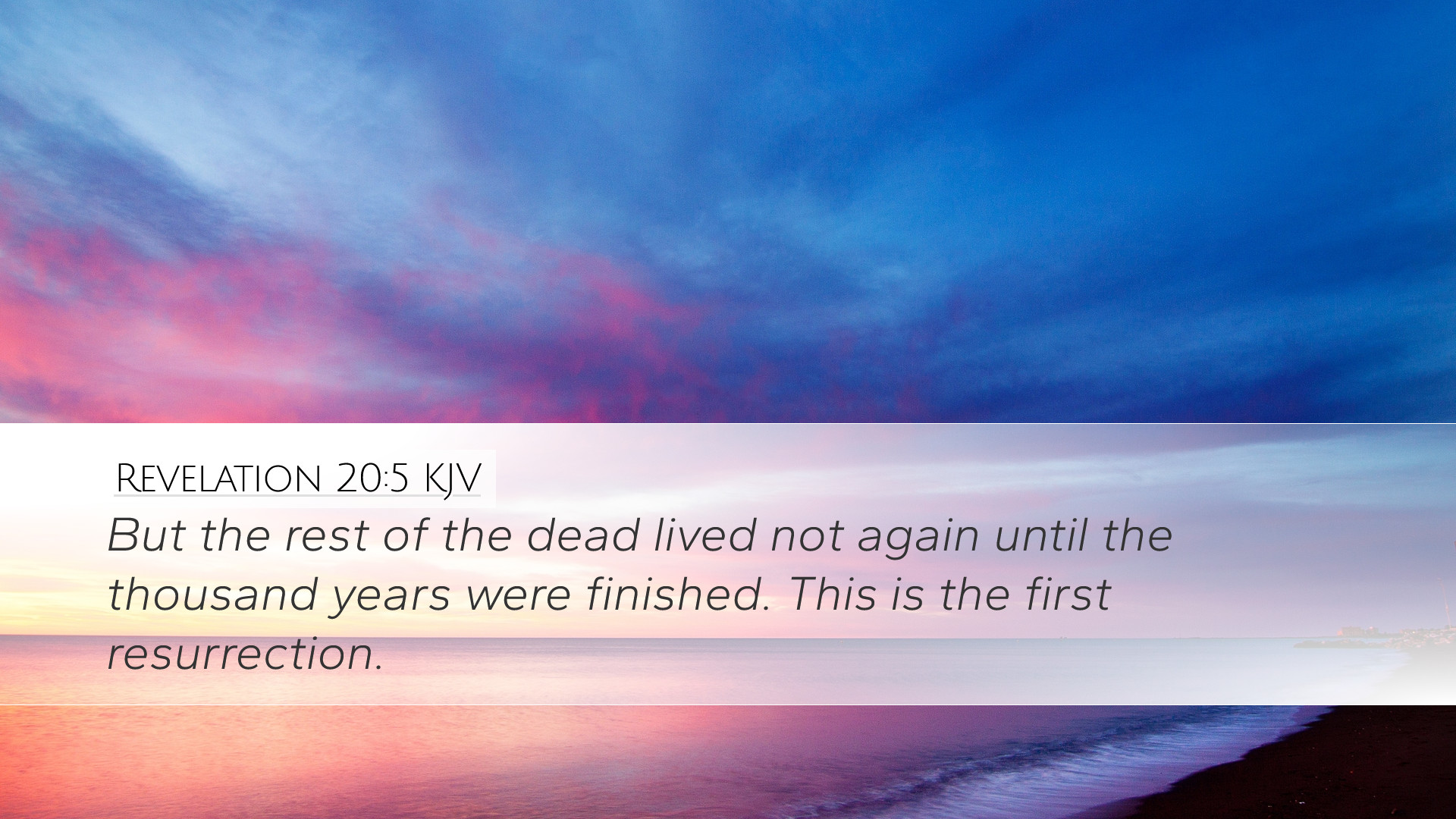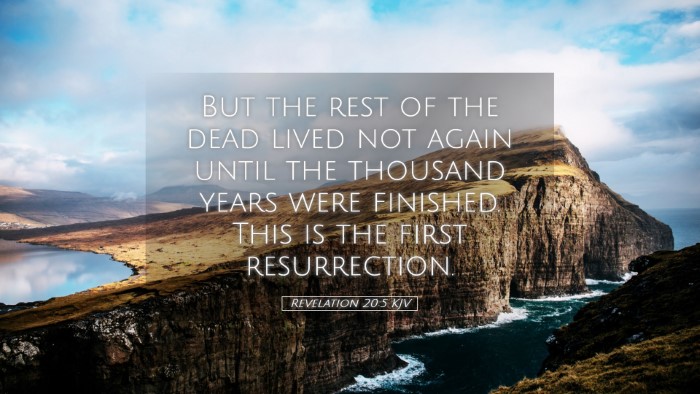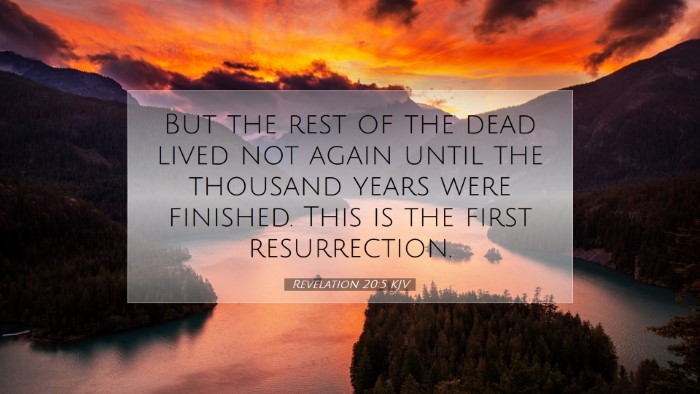Commentary on Revelation 20:5
Bible Verse: "But the rest of the dead lived not again until the thousand years were finished. This is the first resurrection." (Revelation 20:5, KJV)
Introduction
The verse Revelation 20:5 stands as a pivotal moment in the apocalyptic vision presented by John. It discusses the resurrection, differentiating between the first resurrection and the fate of the rest of the dead. Notably, this verse is entrenched in a broader context that deals with eschatological themes—judgment, reward, and the ultimate triumph of God’s kingdom. The insights drawn from various public domain commentaries will be laid out to elucidate the theological significance and implications of this passage.
Exegesis of Revelation 20:5
This verse appears within a section that describes the Millennial reign of Christ, delineating the spiritual rewards for those who have remained faithful to God. Matthew Henry emphasizes the hope associated with the first resurrection, linking it to the broader theme of overcoming death through Christ.
- Matthew Henry: Henry refers to the first resurrection as a sign of victory for believers. Highlighting its spiritual significance, he notes that it is not merely a physical resurrection but a lifting of the soul to eternal life in communion with Christ.
- Albert Barnes: Barnes elaborates on the implication of "the rest of the dead," indicating that those who are outside the faith will not experience spiritual resurrection until after the Millennial reign. This creates a stark contrast between the fates awaiting the righteous and the unrighteous.
- Adam Clarke: Clarke adds a neurological perspective, remarking that this resurrection is both a release from spiritual death and an invitation to the full life promised in Christ. It is not just a future event but reflects the spiritual reality enacted in the present for believers.
The Concept of Resurrection
A profound theme in this passage is the concept of resurrection. Believers are reassured of their eventual victory over death through the promise of resurrection, a cornerstone of Christian hope. As highlighted by various commentaries:
- First Resurrection: The term "first resurrection" suggests a distinction; it signifies a blessed state for those who have died in Christ and are raised to share in the eternal reign. Henry emphasizes that this signifies their triumph over spiritual death.
- Contrast with the Rest: The phrase "the rest of the dead lived not again" has significant implications. It indicates a deferred resurrection for the unjust, which emphasizes the gravity of eternal judgment. This delay serves to underline God's sovereign justice, as noted by Barnes.
Theological Implications
Revelation 20:5 is not merely a statement about resurrection; it encapsulates critical theological doctrines regarding salvation and judgment:
- Hope for Believers: This verse serves as a comforting reminder for believers of their secure future. It assures them that their current sufferings are temporary and that they will reign with Christ.
- Judgment and Accountability: The fate of the rest of the dead serves as a stark reminder of the consequences of rejecting God's grace. Clarke notes that this delay serves as a key element in understanding the nature of divine justice.
Application for Today’s Believers
The message contained within Revelation 20:5 is potent and relevant for pastors, theologians, and scholars today. The challenges of modern faith life bear similarity to the trials faced by early Christians, and the assurance of resurrection remains a critical source of hope. Consider the following applications:
- Encouragement in Trials: Pastors can use this verse to remind congregations of the ultimate victory that awaits those who remain faithful, serving as a catalyst for perseverance.
- Evangelistic Urgency: Understanding the fate of the rest of the dead calls for urgency in evangelism; it reminds believers of the need to share the Gospel so that others may partake in the first resurrection.
- Theological Reflection: Theologians can explore the implications of resurrection not only as a future event but as a present reality for believers, encouraging discussions surrounding the nature of eternal life in Christ.
Conclusion
In summary, Revelation 20:5 serves as a profound declaration of the hope encompassed within Christian resurrection theology. The insights drawn from noted commentaries illuminate the rich theological landscape of this verse, offering guidance and encouragement for believers in every age. The clear distinction between the fates of the faithful and the unrighteous underscores the beauty of grace and the solemnity of judgment. As we reflect on this passage, may we be inspired to live in light of the hope promised through the first resurrection.


